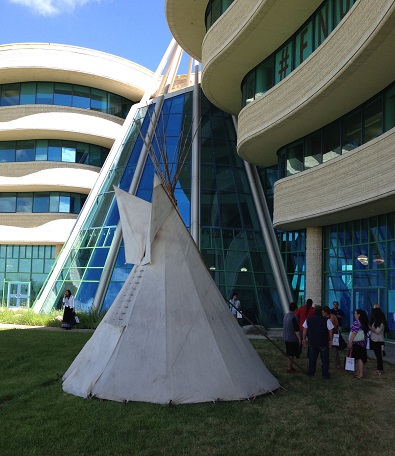The First Nations University of Canada is hosting a three-day national conference involving top researchers and community members who are sharing knowledge about urban aboriginals.
The goal is to find better programs and better ways to serve a growing segment of the First Nations population and at the same time work towards reconciliation.
Sixty per cent of First Nations people live off reserve and that number is growing. The Canadian Indigenous Native Studies association has been doing research on the trend and is sharing its findings during the conference in Regina.
More than 180 academics, First Nations speakers and community members will participate in 47 panel discussions ranging from oral histories about the arrival of the settlers to crime and justice.
FNU president Mark Dockstator says there is a wealth of information.
“Well these are the top researchers from all the different universities across Canada that have an interest or a particular area of expertise in this field of study,” he said. “It does focus on urban but it runs right across the spectrum involving all different types of research.”
One of the chief researchers at the conference is David Newhouse from Trent University. He has also been involved in a network of Aboriginal scholars called the Urban Aboriginal Knowledge Network, which helped organize the conference. He says knowledge sharing is important to finding solutions.
“So part of what we are doing is to build a network of people who are working together and focusing on solving local problems,” he said. “We want to identify local issues around housing, economics, around health, around working together, so that’s what we are trying to do.”
The National Association of Friendship Centres is also involved in the conference. Vice-president Chris Shepard from Labrador says not all research has to be university-driven.
“There is community knowledge and expertise that lies outside of institutions,” he said. “It is just as important as institutional research.”
The theme of the conference is ‘Reconciliation through research.’ This is the second gathering of its type and it is the first time the event has been hosted by the First Nations University.
